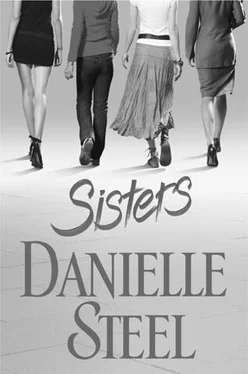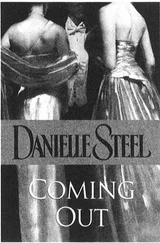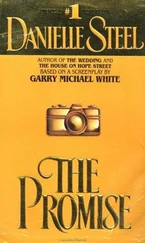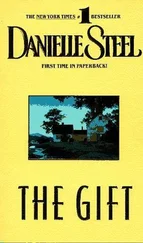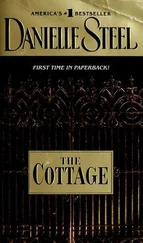Danielle Steel - The House
Здесь есть возможность читать онлайн «Danielle Steel - The House» весь текст электронной книги совершенно бесплатно (целиком полную версию без сокращений). В некоторых случаях можно слушать аудио, скачать через торрент в формате fb2 и присутствует краткое содержание. Год выпуска: 2007, ISBN: 2007, Издательство: Random House, Inc., Жанр: Старинная литература, на английском языке. Описание произведения, (предисловие) а так же отзывы посетителей доступны на портале библиотеки ЛибКат.
- Название:The House
- Автор:
- Издательство:Random House, Inc.
- Жанр:
- Год:2007
- ISBN:9780440242031
- Рейтинг книги:5 / 5. Голосов: 1
-
Избранное:Добавить в избранное
- Отзывы:
-
Ваша оценка:
- 100
- 1
- 2
- 3
- 4
- 5
The House: краткое содержание, описание и аннотация
Предлагаем к чтению аннотацию, описание, краткое содержание или предисловие (зависит от того, что написал сам автор книги «The House»). Если вы не нашли необходимую информацию о книге — напишите в комментариях, мы постараемся отыскать её.
The House — читать онлайн бесплатно полную книгу (весь текст) целиком
Ниже представлен текст книги, разбитый по страницам. Система сохранения места последней прочитанной страницы, позволяет с удобством читать онлайн бесплатно книгу «The House», без необходимости каждый раз заново искать на чём Вы остановились. Поставьте закладку, и сможете в любой момент перейти на страницу, на которой закончили чтение.
Интервал:
Закладка:
“I'll only stay a few minutes. I don't want to be a nuisance. My grandmother said she came here years ago, but it was all boarded up, as you said. Why has no one lived here for so long?”
“There were no heirs. The last marquis had no children. Someone bought it after the war, but they died very soon after, and it became a big battle with their family. They fought over it for twenty years, and never lived here. In time, they just left it, the people who had wanted it were gone, the others didn't want to live here. It has been for sale for many years, but no one was foolish enough to buy it until me.” He laughed and greeted the workmen as they walked in.
The inside of the château was vast and somewhat gloomy. There were enormously high ceilings, and a grand staircase leading to the upper floors. There were long hallways where Sarah could imagine ancestral portraits. Now there were rugs rolled up against the walls. There were sconces made for candles, and as they walked farther in, the tall windows let in sunlight. She thought the house in San Francisco was prettier and brighter, but it was also infinitely smaller. There was a cavernous feel to this that Sarah somehow found sad. This was a whole different life. She wondered again if Lilli had been happy here in her life as a marquise. It was such a different life.
The new owner of the château walked her upstairs, and showed her the enormous ancestral bedrooms, and several libraries still filled with books. There was a drawing room with a fireplace that a tall man could stand up in, and her host proved it to her, and then as an afterthought, he held out his hand to her.
“I'm sorry to be so rude. I'm Pierre Pettit.” He shook her hand, and she introduced herself to him. “Not the Marquis de Mailliard,” he teased. “You are the great-granddaughter of a marquise, I am the great-grandson of a peasant, and the grandson of a cook. My mother was a maid here as a young girl. I bought the place because my family worked here as long as there were Mailliards here. Originally, they were serfs. I thought it was time to put a Pettit in the château, since there are no Mailliards left. Peasants are of stronger stock, and eventually they rule the world.” He laughed as he said it. “I am very happy to know you, Sarah Anderson. Would you like a glass of wine?” She hesitated, and he led her into an enormous kitchen that was still a relic of the past. They hadn't renovated it yet. The stove was at least eighty years old, and looked a lot like the one she had just thrown out.
Sarah didn't know it, but Pierre Pettit was one of the most important wine merchants in France. He exported wine all over the world, particularly to the States, but to other countries as well. He took a bottle off a rack, and she was stunned when she saw the name and vintage. He was opening a bottle of Château Margaux 1968.
“That's the year I was born,” she said with a shy smile, accepting a glass of it from him.
“It should breathe for a little while,” he apologized, and then took her to see the rest of the château. They were back in the ancient kitchen half an hour later. It was a once beautiful but now dreary place. He had explained his plans for it to her as they walked around, and asked her questions about her house. She had told him what she was doing, how much she loved it, and she told him Lilli's story, which he found intriguing, too. “It's amazing that she left her children, don't you think? I don't have any myself, but I can't imagine a woman doing that. Does your grandmother hate her for it?”
“She never talks about her, but I don't think so. She doesn't know much about her, she was six when her mother left.”
“She must have broken her husband's heart,” he said sympathetically.
“I think she did. He died about fifteen years later, but after losing his fortune and his wife, my grandmother says he more or less became a recluse, and eventually died of grief.”
Pierre Pettit shook his head as he sipped his wine. “Women do things like that,” he said, looking at Sarah. “They can be heartless creatures. That's why I never married. And it's so much more entertaining to have one's heart broken by many than by just one.” He laughed after he said it, and so did Sarah. He didn't look like he had a broken heart to her, but rather as though he had done the heart breaking, and enjoyed every minute of it. He was a very attractive man, with a lot of charisma, and was obviously very clever in business. He was spending a fortune restoring the château.
“You know, there is someone I think you would like to meet,” he said, looking pensive. “My grandmother. She was the cook when your great-grandmother lived here. She's ninety-three years old and very frail. She can't walk now, but she remembers everything in minute detail. Her memory is still excellent. Would you like to meet her?”
“Yes, I would.” Sarah's eyes lit up at the prospect.
“She lives about half an hour from here. Shall I take you?” he asked, setting down his glass, and smiling at her.
“Would it be too much trouble? I have a driver, if you give us directions.”
“Don't be silly. I have nothing to do here. I live in Paris. I just came down for a few days to check on their progress.” According to what he had told Sarah, completion was still two years away. He'd been working on it for a year. “I'll drive you there myself. I enjoy seeing her, and she always scolds me that I don't come often enough. You've given me a good excuse. She doesn't speak English. I will translate for you.”
He strode purposefully across the hallway, and down the main stairs, with Sarah following him, excited to have met him and to have the opportunity to meet a woman who had known Lilli. She hoped his grandmother's memory was as good as he said. She wanted to be able to go home to Mimi with something about her mother. It was like a gift she wanted to bring back, and she was grateful to Pierre Pettit for his help.
He left her in the courtyard and told her he'd be back in a moment. He reappeared five minutes later, driving a black Rolls convertible. It was a very handsome car. Pierre Pettit treated himself very well. His ancestors may have been serfs, but he was obviously a very rich man.
Sarah got in beside him, after explaining to her driver that the gentleman would take her back to the hotel. She tried to pay him, but he said it would be on her bill. And a moment later, she and Pierre sped off. He chatted easily with her on the way, asking her about her work and life in San Francisco. She said she was an attorney, and he asked if she was married. She said she wasn't.
“You're still young,” he said, smiling. “You will marry one day.” He said it almost smugly, and she rose to the challenge instantly. She liked him, and he'd been very nice to her. She was enjoying the ride through the countryside in his Rolls. It would have been hard not to. It was a perfect April day, and she was in France, driving around in a Rolls-Royce with a very handsome man who owned a large château. It was all very surreal.
“Why do you think I'll marry? You didn't. Why should I?”
“Ahhh… you're one of those, are you? An independent woman. Why do you not wish to marry?” He enjoyed sparring with her, and he obviously liked women. And she suspected they loved him.
“I don't need to be married. I'm happy the way I am,” Sarah said easily.
“No, you're not,” he said smugly. “An hour ago you were alone in an old Renault with no one to talk to. You are traveling in France alone. Now you're in a Rolls-Royce, talking to me, and laughing, and seeing pretty things. Isn't it better like this?”
“I didn't marry you,” Sarah said pointedly. “We're much better off like this. Both of us. Don't you think?”
He laughed at her answer. He liked it. And he liked her. She was bright, and quick. “Perhaps you're right. And children? You don't want children?” She shook her head, looking at him. “Why not? Most people seem to enjoy their children a lot.”
Читать дальшеИнтервал:
Закладка:
Похожие книги на «The House»
Представляем Вашему вниманию похожие книги на «The House» списком для выбора. Мы отобрали схожую по названию и смыслу литературу в надежде предоставить читателям больше вариантов отыскать новые, интересные, ещё непрочитанные произведения.
Обсуждение, отзывы о книге «The House» и просто собственные мнения читателей. Оставьте ваши комментарии, напишите, что Вы думаете о произведении, его смысле или главных героях. Укажите что конкретно понравилось, а что нет, и почему Вы так считаете.
